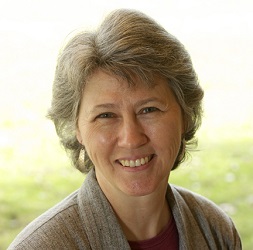Commentary on Romans 10:8b-13
When Jesus goes into the desert for forty days and nights, he comes face-to-face with the tempter who asks him three questions. Each question challenges Jesus to prove his identity (“If you are the Son of God” … ) by using the power that comes with that identity in a self-serving way (for example, assuage his hunger by turning stones into bread). As we enter the period of Lent, we, like Jesus, are invited to reflect on questions of identity: who/whose we are and how we live authentically into that identity. Romans 10:8b-13 offer a fruitful meditation on these questions.
Paul’s Poetry
While these verses can be heard as prescriptive, they are more nearly poetical. Three quotes from the Hebrew Scriptures create a framework for the passage: verse 8b (Deuteronomy 30:14), verse 11 (Isaiah 28:16, modified; see also Romans 9:33), and verse 13 (Joel 3:5). Paul then creates links between each Scripture and his own words through the repetition of words. In verses 9-10 he repeats the language of “lips/mouth” and “heart” that appear in verse 8b. Notice, also, the parallel construction in verses 9-10:
Verse 9:
A If you confess with your lips
B and believe in your heart
C you will be saved
Verse 10:
B’ one who believes with the heart
A’ and confesses with the mouth
C’ is saved
Verses 9-10 anticipates the quote from Isaiah 28:16 in verse 11 with the repetition of the word “believe;” verses 12-13 are linked together by the repetition of the language “to call upon.” Finally, verse 13 hearkens back to verses 9-10 with the use of the word “save.” In other words, these verses are meant to be evocative, inspirational, and uplifting.
Who/Whose are We?
If we approach these verses through the lens of the question “who/whose are we?” we find at least three different responses to the question. Verse 8b suggests that we are people to whom the word has come near, who have heard the word proclaimed. This is something we may not often think about, but it can be insightful:
- How might we summarize “the word of faith” that we have heard proclaimed? For some, this might be shaped by denominational affiliation; for others, by a personal response.
- In what way does the word draw near to us? As a spoken word? A written word? A visual image? A ritual? An action undertaken by another that we witness?
- What makes us receptive to the word? How might context play a role?
- How do our responses to these questions inform what we would answer in response to the question “who/whose are we?”
Living Authentically into Our Identity
Verses 9-10 turn our reflection on the question “who are we?” in a little different direction. The emphasis here is not on what we have heard, but on what we do with what we have heard. It is worth pausing to take a closer look at four words:
- The first is “heart” (kardia). We often think of the heart as the seat of emotions, but in Koine Greek it refers to the “seat of physical, spiritual, and mental life” (Danker, p. 508); in short, the whole, integrated self.
- The second word is “believe” (pisteuō). This is the verb, not the noun; it refers to an action rather than a statement. It is what we do with our hearts. Inherent in the verb “believe” is the notion of “trust.”
- The third word is “mouth” (stoma). The mouth stands for the means by which we communicate. There are, of course, many ways to communicate: with our hands, with our faces, in writing. Key here is that we engage other people with some kind of speech act, giving outward expression to something in our hearts.
- The fourth and final word is “confess” (homologeō). We may associate this word with confession of sin or wrongdoing, but it also has distinctly positive angles: to acknowledge something publicly; to be of a common mind; or to commit oneself to doing something for the benefit of someone else (Danker, p. 708).
These verses offer a different way of thinking about how we might answer the question, “Who/Whose are we?” by moving more in the direction of how we authentically live into that identity:
- How do we demonstrate that we have entrusted our whole being to God?
- How does having confidence that God raised Jesus from the dead shape the way we live now?
- How do our speech acts offer evidence that we have entrusted our whole being to God?
- What are the different ways that we confess and what is it that we confess?
All Who Call on God’s Name
Verse 12 invites yet another line of inquiry. Paul proclaims that there is no distinction between Jew (heirs of Abraham) and Greek (Gentiles): God is generous to all who call on God’s name. Although the terms “Jew and Gentile” may not resonate with our settings, Paul’s language echoes the kind of divisions we create among those who call on God. This too has a bearing on the question of identity and how we live authentically into that identity.
- To use the language of Paul, would we be more likely to identify ourselves as Jews or as Greeks? Why?
- When we think of the “people of God” whom do we include in that group? What do these people look like? Do they all look like us? In what ways? In what ways do they look different from us?
- Are there ways that we draw distinctions among those who “call on the name of God”? What do we gain by making such distinctions? What do we lose?
- How do our responses inform our understanding of who/whose we are and what it means to live authentically and faithfully into our identity?


March 6, 2022